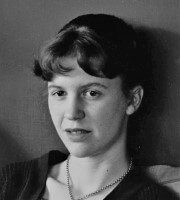by Garry Robert McDougall
Bermeo, Bermeo,
passion and sorrow beneath your forest blanket.
On steep and wooded coast, arena to the Bay of Biscay,
Bermeo, home and hearth clustered around a small inlet,
tall apartments hugging the slopes like eager spectators,
salty air on your cheeks,
residents drink morning coffee from balconies,
your children play
overlook harbour and mighty sea walls,
watch the comings and goings of sea craft docking their catch,
bobbing on reverberating waters,
bouncing off disappointments,
pointing to persistent centuries of struggle
against the rambunctious sea,
eyes drawn to the horizon
where dwells the souls of fisher folk.
The morning train steals into your heart,
burrows into its final station.
People walk through turnstiles,
pass cast-iron barriers and dark gates,
white signs in your fond language,
loud air, closed faces,
your morning pedestrian,
the sun in her eyes,
whispers of the day,
'Something might come of it.'
Residents in the old town’s apartments,
bars and stores,
lo0k from their windows and balconies
across narrow lanes,
see neighbours hanging their washing,
searching for brothers, sisters and bread,
men and women make love
on large beds in small rooms,
watch television, cream on their lips,
recalling desperate times when fish
was a wife’s only meal, a manly touch,
and she whispers, 'Something came of that.'
Tranquil in the park:
bandstand, footpaths, patterned garden,
lush lawn and cast-iron seats,
older men and women chat, play cards and
watch the future pass,
surround cafes and eateries,
basic menus, coloured banners,
scurrying waiters,
and the ONCE booth
where townspeople buy their lottery tickets,
drawing on luck in hope of the big win.
Children ride their small bicycles and scooters,
mother's earnest watch,
raising eyebrows to new arrivals.
Check tickets again- no big win today.
Around the corner barnacle shops,
storehouses and flats cling to rocky shore,
stone, brick and ironwork, café tables,
seaside crags, stairs to somewhere,
people washed over by the sea,
earnest and grim, tortilla under fork,
worry and promise in their eyes.
They remember sister Guernica
pummelled and plundered by Hitler’s warplanes,
the Basque nation trembling on still-born independence,
when Bermeo fought the Battle of Machichaco,
against the odds, four small trawlers protecting
Republican people, guns and coinage
against the rebel cruiser Canarias,
fishnets against cannon.
Thirty-six dead stand high on the hill,
a nickel sculpture commemorate their loss,
our loss, remembering
all that was broken and sunk,
and all that has been floated again-
Battle of Machichaco,
your trawlers destroyed or damaged,
Nature’s salute is the crags offshore,
built of shipwrecks.
Festival approaches.
Your men hover around gas bottles
preparing for BBQ celebrations in the park,
fairground trappings of sweets, games and contest,
nationalist flags fly high on balconies,
a weightless man clings to a hundred colourful balloons
begging to buy before he floats away.
Technicians wrestle stage wires, test lights and puffing fog,
jeweller and fortune-teller offer beauty and hope.
In lengthening port shadow,
high street’s procession is led by the tall grotesque,
thin man draped in indigo-blue,
a wooden face framed by horsehair mane,
man-on-stilts leans with cold accusative eyes,
lurching one way, then another,
unpredictable and frightening,
like the centuries.
The audience applauds the young women in folk dress,
carrying drums, beating out a single note,
a missing beat, the same note following,
sombre, militant, foreboding,
as restrained as a funeral.
Mothers and grandmothers follow,
the elder women holding dolls, pride of tomorrow;
cooks and medicos present with drums,
again the missing, heart-stopping beat
of past and future sorrow.
Men in black berets, steel blue shirts
and the white scarves of honour
are pictures of manly strength,
marching to the same beat, the same sorrow,
declaring readiness for tomorrow’s courage.
Precious Bermeo; all that you have Bermeo,
Basque Bermeo, and all that you might be,
passion and sorrow beneath your forest blanket.





